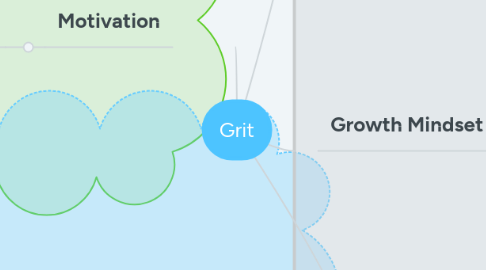
1. Perseverance
1.1. I believe that perseverance is one of the most, if not THE most, important parts of education. As a teacher, my profession is defined by facing challenges head on and NEVER giving up on a student. Every day I must put my best foot forward. These are lessons that I have learned and hope to instill in each student I interact with.
2. Motivation
2.1. Passion
2.1.1. Students may not be motivated for a variety of reasons. It is our job to discover what motivates individual students to learn and to grow, which will be different for each.
2.1.2. Showing my own passion for subjects and learning in general is important when teaching students and helping them to build up their intrinsic motivation.
3. Long-term goals
3.1. It is a marathon not a sprint
3.1.1. This year was my first year as an official classroom teacher. The entire experience -starting the year with my middle school students and finishing the year with my high school students - has taught me so many things, about myself, children, education, and society. These are lessons I could not have learned any other way. I continually had to remind my students and myself - that we are in this for the long haul. Learning is for life. Change pace as needed, but always remember to keep moving forward.
3.2. Make your future a reality
3.2.1. Practicing setting goals is integral in a classroom. Having grit, sticking with it, not giving up through failure and disappointment will get you there. Giving up, quitting, and not trying leave you stuck.
4. Growth Mindset
4.1. "The ability to learn is not fixed - it can change with your effort".
4.1.1. This quote spoke to me the most. In my classroom, I try to model and encourage students to put out their best effort each and every day. They may not always be right or perfect (never the case for humans, anyways) but the most important part of learning is to TRY.
4.2. Failure is not permanent
4.2.1. I think some students get stuck within their patterns. If they have not always been the best at playing the "school game" (getting good grades, etc) they begin to belive that that is all they are capable of, and I think they begin to feel that failure defines them, which is not the case.
4.3. Persevere through failures and challenges
4.3.1. Perseverance is hard. When we face challenges, we often will not know the outcome. What if we put effort in, but I don't get the result I want? I think part of learning to persevere involves learning to deal with the ups and downs that life brings. We will not always be rewarded. Everything will not always be peachy. But as you progress and gain new perspective by facing failure and challenges, you will grow. Once you see things in this way, you know you are capable of getting through it.

